Although India does not have the necessary infrastructure to support the development of sports fishing at a major industrial scale, it has all the necessary potentials to develop itself into a rich, international recreational fishing destination in the not so distant future.
Currently, major recreational or sports fishing activities and opportunities are quite limited or in miniscule in India with respect to marine or brackish water fishing.
However, there are some non-formal, freshwater fishing activities available across the nation as an unorganized cottage industry that needs proper revamping. India can easily develop into a major, international recreational or sports fishing destination if it is planned meticulously with appropriate safeguards to promote local economy without impacting vulnerable, natural aquatic ecosystems.
Some of the best suggestions for sports fishing or recreational fishing in India can be highlighted as follows:
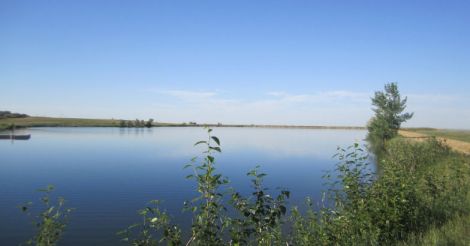 Photo: Saikat Kumar Basu
Photo: Saikat Kumar Basu1. Extensive mapping and recording of all inland fresh waterbodies: ponds, swamps, bogs, lakes, streams, channels, creeks, rivers, estuaries, tributaries, distributaries in each state and union territories. This will help policymakers and environmental regulators to assess their natural aquatic resources and help designing appropriate recreational or sports fishing policy framework and guidelines.
2. Maintaining record of all commercial edible fish species, indigenous and endemic wild fish species and exotic fish species currently present in fresh and brackish water bodies across the nation.
3. Fish species should be exploited according to their current population dynamics. No harvesting, capture or any form of commercial fisheries or recreational or sports fishing activities or poaching will be allowed for any wild fish species (for example: rare, indigenous, endemic, vulnerable, susceptible, endangered or critically endangered species).
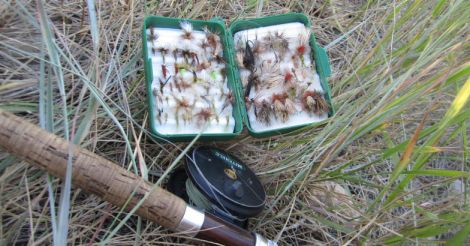 Photo: Saikat Kumar Basu
Photo: Saikat Kumar Basu4. Species for exploitation for recreational or sports fishing should include only commercial edible species or non-edible ornamental species or exotic and/or undesirable predatory species accidentally introduced in natural or artificial waterbodies that are detrimental to the populations of both wild as well as commercial fish species and are a serious ecological threat to them.
5 Best management practices (BMP) for recreational or sports fishing from an Indian perspective would be edible commercial or non-edible ornamental fish species in highly regulated, registered, certified, well maintained and monitored, professionally managed artificial waterbodies only.
6. Strict, legal restrictions should be imposed on exploiting any young or juvenile fish or gravid females with eggs for target species to maintain a healthy stock population for future exploitation. This is also important for maintaining the local aquatic ecosystems without adding detrimental negative anthropogenic impacts due to either overfishing or irresponsible fishing activities.
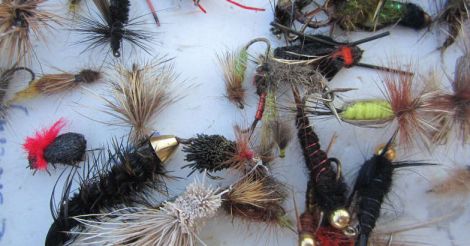 Photo: Saikat Kumar Basu
Photo: Saikat Kumar Basu7. Proper management practice guidelines need to be imposed for sustainable management of artificial and natural waterbodies opened for recreational or sports fishing.
8. Regular monitoring and survey of the exposed waterbodies will be important to assess health of the aquatic ecosystem and in determining the population dynamics of the exploited commercial species.
9. Recreational or sports fishing in enclosed and artificial waterbodies well stocked with commercial edible species or non-edible ornamental species can serve as the best profit earning model for India under the current circumstances and existing wildlife and conservation regulations.
10. Anglers may be allowed to retain their catch, if the individual captured reaches the prescribed legal size for that individual species as determined by the local environmental organization or the local water body management group or society or cooperative.
11. Number of catches per angler per day can also be restricted based on availability of different commercial species and the sustainability of the water body in which they are available.
12. Any accidental catch of restricted species should be reported and immediately released back into the water body by the individual angler for conservation purposes.
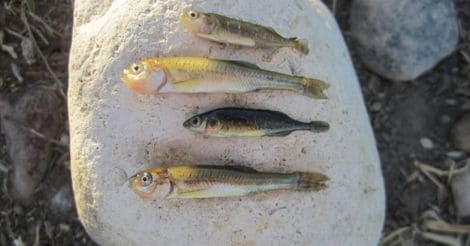 Photo: Saikat Kumar Basu
Photo: Saikat Kumar Basu13. Any undesirable or natural/artificial hybrid species identified should also be reported and recorded for research purpose.
14. Recreational or sports fishing have great potential to generate local employment and help in building local economy.
15. It can provide additional income for many managed inland waterbodies and fishermen societies or cooperatives without impacting wild fish populations.
16. It has the potential to open up new tourism opportunities for rich professional and/or amateur anglers, recreational fishing enthusiasts interested in gaining overseas fishing experiences while experiencing challenges and adventure.
17. Recreational or sports fishing, if managed and handled successfully, has the potential to bring in new sources of foreign exchange earning for India.
18. Fish taxidermy is an important artwork and recreational or sports fishing can boost this art form into a formal cottage industry. Many anglers are enthusiastic about preserving their catch not only in photos and videos but also in the form of taxidermy preservation. Therefore, good and enterprising fish taxidermy artists can make considerable income by developing taxidermic forms of preserved trophies for their local and overseas clients and customers.
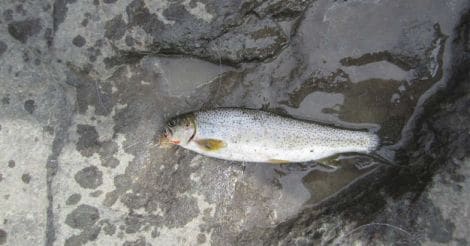 Photo: Saikat Kumar Basu
Photo: Saikat Kumar Basu19. Taxes incurred form the fishing licenses will be an important source of revenue for the government.
20. The recreational or sports fishing opportunity in India has the potential to open major tourism opportunities empowering local economies and increasing employment for both rural and urban youths in various capacities and sectors.
(The author is a Canada and India based freelance journalist specializing in global geo-political, strategic and foreign policy issues, science & technology and environment & conservation related themes.)

























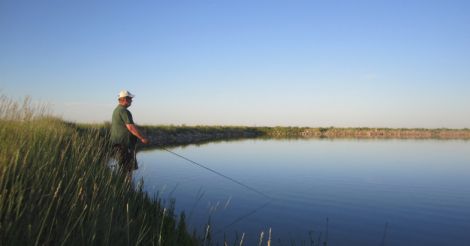 Photo: Saikat Kumar Basu
Photo: Saikat Kumar Basu